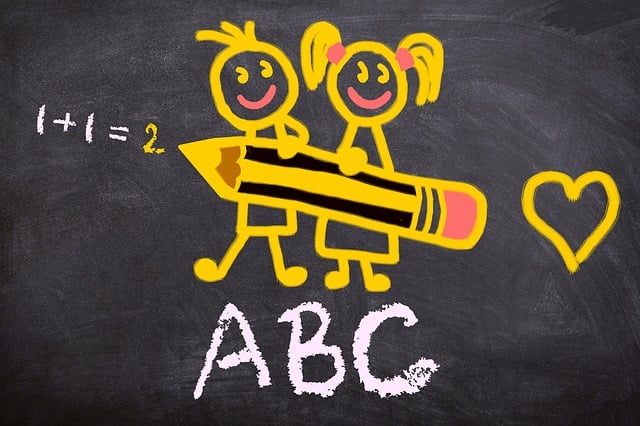The historical context of Agape Boarding School abuse cases reveals power dynamics that enabled physical, emotional, and sexual misconduct towards vulnerable young people from marginalized backgrounds, exacerbated by lack of regulatory oversight. Recent legal developments have shifted the focus to institutional liability, holding schools and leaders accountable for preventing and addressing abuse, providing enhanced protections and hope for victims. Three key strategies—prevention, accountability, and support—are vital: strengthening regulations and transparency, ensuring legal consequences and tailored therapy for perpetrators and survivors, and offering comprehensive assistance for healing and rebuilding lives, honoring the resilience of Agape Boarding School abuse survivors.
“Unveiling the legal landscape surrounding Agape boarding school abuse cases, this article offers a comprehensive insight into a dark chapter of historical exploitation. From understanding the roots of the scandal to exploring recent legal victories for victims, we delve into the fight for justice. We analyze how evolving laws are empowering survivors and holding perpetrators accountable. Furthermore, we examine strategies for prevention, support, and healing as the road ahead focuses on ensuring no other families suffer in silence. Discover the steps taken to bring closure and promote awareness regarding Agape Boarding School Abuse.”
- Understanding Agape Boarding School Abuse Cases: A Historical Perspective
- Recent Legal Developments and Their Impact on Victims' Rights
- The Road Ahead: Prevention, Accountability, and Support for Survivors
Understanding Agape Boarding School Abuse Cases: A Historical Perspective

The Agape Boarding School abuse cases have garnered significant attention due to their historical roots and ongoing legal implications. The schools, which operated under the guise of religious education and discipline, were often hotspots for physical, emotional, and sexual misconduct. These institutions, prevalent in various forms throughout history, have left a lasting impact on survivors who are now coming forward to seek justice.
A historical perspective reveals a pattern of power dynamics that facilitated abuse. Agape Boarding Schools, like many others, exploited the vulnerability of young individuals, often from marginalized backgrounds, under the guise of education and rehabilitation. The lack of regulatory oversight and enforcement allowed for these institutions to thrive, causing profound trauma and long-lasting psychological effects on their victims. Understanding this historical context is crucial in navigating the current legal landscape surrounding Agape Boarding School abuse cases.
Recent Legal Developments and Their Impact on Victims' Rights

Recent legal developments have brought about significant changes in how Agape boarding school abuse cases are handled, offering new hope and protections for victims. Key among these advancements is a heightened focus on institutional liability, with courts increasingly recognizing the responsibility of schools and their leaders in preventing and addressing abuse within their walls. This shift has been catalyzed by high-profile cases that shed light on systemic failures at Agape Boarding School, leading to increased scrutiny and more stringent legal standards.
The impact of these developments is profound for victims seeking justice. First, it strengthens their legal position by placing a greater burden of proof on the institutions accused of misconduct. Secondly, it expands the scope of potential compensation, including not just monetary damages but also therapeutic and rehabilitative services tailored to address the psychological trauma suffered as a result of the abuse. This holistic approach acknowledges the multifaceted impact of Agape boarding school abuse and ensures that victims receive comprehensive support in their recovery process.
The Road Ahead: Prevention, Accountability, and Support for Survivors

As we look ahead in the pursuit of justice for Agape boarding school abuse survivors, several key aspects require focused attention. Prevention strategies are paramount to stop future instances of such maltreatment from occurring within similar institutions. This involves strengthening regulations and oversight of boarding schools, promoting transparency, and providing comprehensive training on child protection protocols to staff and administrators.
Accountability is equally crucial. Ensuring that those responsible for the abuse face legal consequences while offering support services to survivors is essential. Effective support can help victims heal, regain their sense of safety, and rebuild their lives. This includes access to therapy, counseling, and legal aid tailored to their unique needs. By addressing prevention, accountability, and support holistically, we can create a safer environment for vulnerable individuals and honor the resilience of Agape boarding school abuse survivors.
The ongoing legal updates in Agape boarding school abuse cases mark a significant step towards justice and healing for survivors. By addressing historical perspectives and recent developments, it’s clear that a more robust system of accountability is taking shape. The road ahead involves prevention strategies, increased support for survivors, and continued pursuit of justice. These efforts collectively contribute to creating a safer environment, ensuring no one endures the abuse suffered by former Agape boarding school students.
